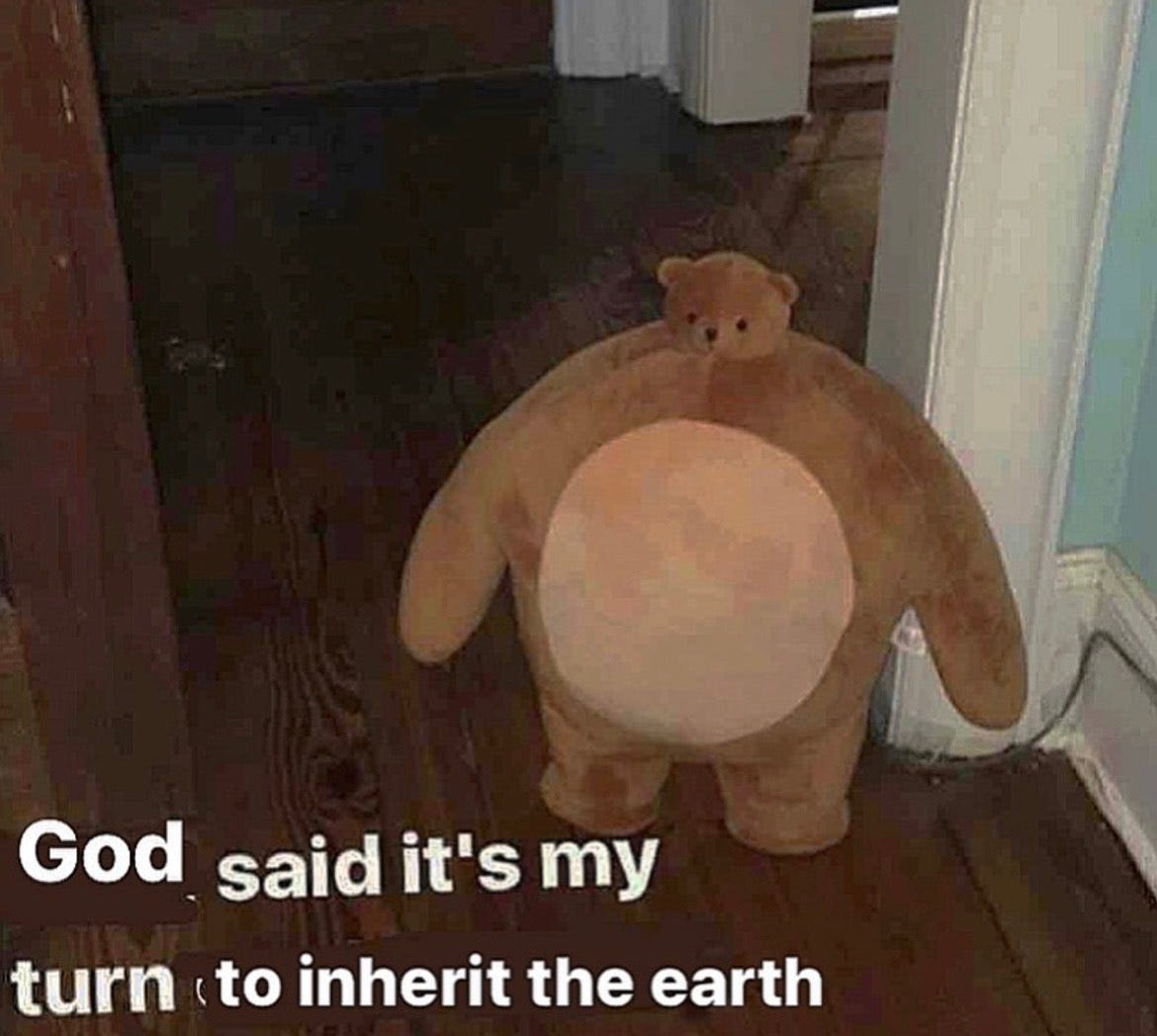“Learn the tradition you seek to oppose; know the master you seek to overthrow. Master the logics that bind you and imagine those that will free you—even, especially, when they seem impossible.”
Last Saturday morning, I went to D.C. with friends and 300,000 others calling for a cease-fire in Gaza. The last time I’d protested in D.C. was at the Women’s March in 2017 after Trump’s inauguration, which according to “crowd scientists” drew in 470,000 people to Washington. How they conclude these numbers, I don’t know. I read that the biggest outcome of the 2017 march was an increase in civic participation among women. And I couldn’t help but think… that’s all?
My grandfather’s family, who were originally North Koreans, devoted their lives for decades to fighting the Japanese occupation. After Japan was defeated in World War II, they were caught in the middle of a proxy war (otherwise known as the Korean War) which ended with a cease-fire agreement, yet a divided country and ongoing conflict to this day. Two years ago, I discovered that my grandmother lost her six-year-old sister to American bombings during said war. As I write this, I’m reminded of how much war is embedded in my family history, having scarred us deeply to the point of living in a constant dissociative state since assimilating in the U.S. When I asked grandma how she kept on living after losing her baby sister, she replied: hope.
Aware of the privileges that being a first-generation American has afforded me, I try to fend off the nihilistic attitude of my generation’s learned helplessness. It is disgraceful to approach the current Gaza crisis through the luxurious lens of disenchantment so casually donned by the creative class, i.e. the Brad Troemels of our time with tired takes on the posturing of posting and virtue signaling. I like what sociologist Matthew Donovan had to say in response, reminding audiences to try and seek guidance not from meme critics, but from those who have practical experience in political grassroots organizing.
The problem now is we create history very self-consciously. I’ll admit I’ve been cautious about my political engagement online over the past month after recently reflecting on former reactionary faux pas circa 2020. Mainly, I am sick of discord being sown only to reproduce the status quo and widespread feelings of the future as futile. This sort of psychological demolition was exactly the kind of warfare technique deployed by the Stasi to destroy the self-confidence of its opponents, through undermining their relationships with friends, colleagues, families, and lovers. Yet, I understand the hysteria.
Dominant colonial mentality maintains itself by perpetuating acceptable narratives, mythologies, modes of thought, and even modes of desire. With rampant McCarthyism-era censorship and much of the media landscape now being starved out, it’s obvious which dominant force is trying to establish what’s acceptable through the most unacceptable ways. Social media has continually been recolonized since Facebook and Twitter first played a role in decolonization movements across Tunisia, Egypt, and the Arab Spring uprisings. Palestine is the paradigm of classic colonialism, as is the colonization of South Africa, where the only means to end the abhorrent apartheid system was decades of collective mobilization.
The scholar Basyouni Hamada once argued that the fundamental role of social networks is to create collective understanding and to establish a shared knowledge community and memory. A memory. If we are lucky, that’s all this moment might become for us. We have to remember that collective power will always frighten the Powers That Be. Change is slow, but history’s shown that things only change for the better not when dominant powers offer reform out of willingness, but when demands for it are made by mass numbers of people.
I don’t want this critical time to amount to just another statistic. I acknowledge it’s easy to think of what we don’t want. It takes imagination to think of what we do. That’s why our television screens are colored with rampant dystopian horror where images of utopia pale. Not everyone needs to be political. Not everyone has to protest. And my god, not everyone has to post. But there is more to political action than the elements of speculative performance we “armchair revolutionaries” love to brood over. And I say this as someone whose grandparents were, actual fucking armed revolutionaries. Purposeful action, and informed engagement, no matter how small, matters. And if it doesn’t to you, it will to someone else, whose livelihood depends on just having a little bit of fucking hope.
I think nationalism is an evil plague in the world. Nihilism, too. I think more people, especially women and those in the creative class, should continue to participate in civic engagement any way they can, or maybe change careers entirely and claim more positions of power. I think it’s time to put an end to our paternalistic approach to culture and the male-led, cannibalistic terrors of today. I think it’s better to feel desire than defeat. In Cruel Optimism, Lauren Berlant writes: “The political depressive might be cool, cynical, shut off, searingly rational or averse, and yet, having adopted a mode that might be called detachment, may not really be detached at all, but navigating an ongoing and sustaining relationship to the scene and circuit of optimism and disappointment.” We may be products of history’s old patterns, but freedom should be used wherever it is found, not taken for granted.
Recommended reads:
Girard’s mimetic theory on scapegoating and history of collective murder by Sam Kriss/
. This line from one of Girard’s interviews was especially chilling: “You can foresee the shape of what the Anti-Christ is going to be in the future: a super-victimary machine that will keep on sacrificing in the name of the victim.”Facts, fallacies, and power: George Orwell on the dangers of nationalism.
The Female Man by Joanna Russ (love you, Soraya).
Sarah Thankam Matthews/
on “Amor Mundi”/The Human Condition by Hannah Arendt/on love, mourning, forgiveness, vengeance, and grace. On “The challenge of what it means to first accurately see the world, with all its horrors and failings, and then commit ourselves to it, to care for it, nonetheless. It is a provocation to meet each other across chasms of difference, as human beings, to commit ourselves to the world with understanding, criticality, and steadfastness.”





